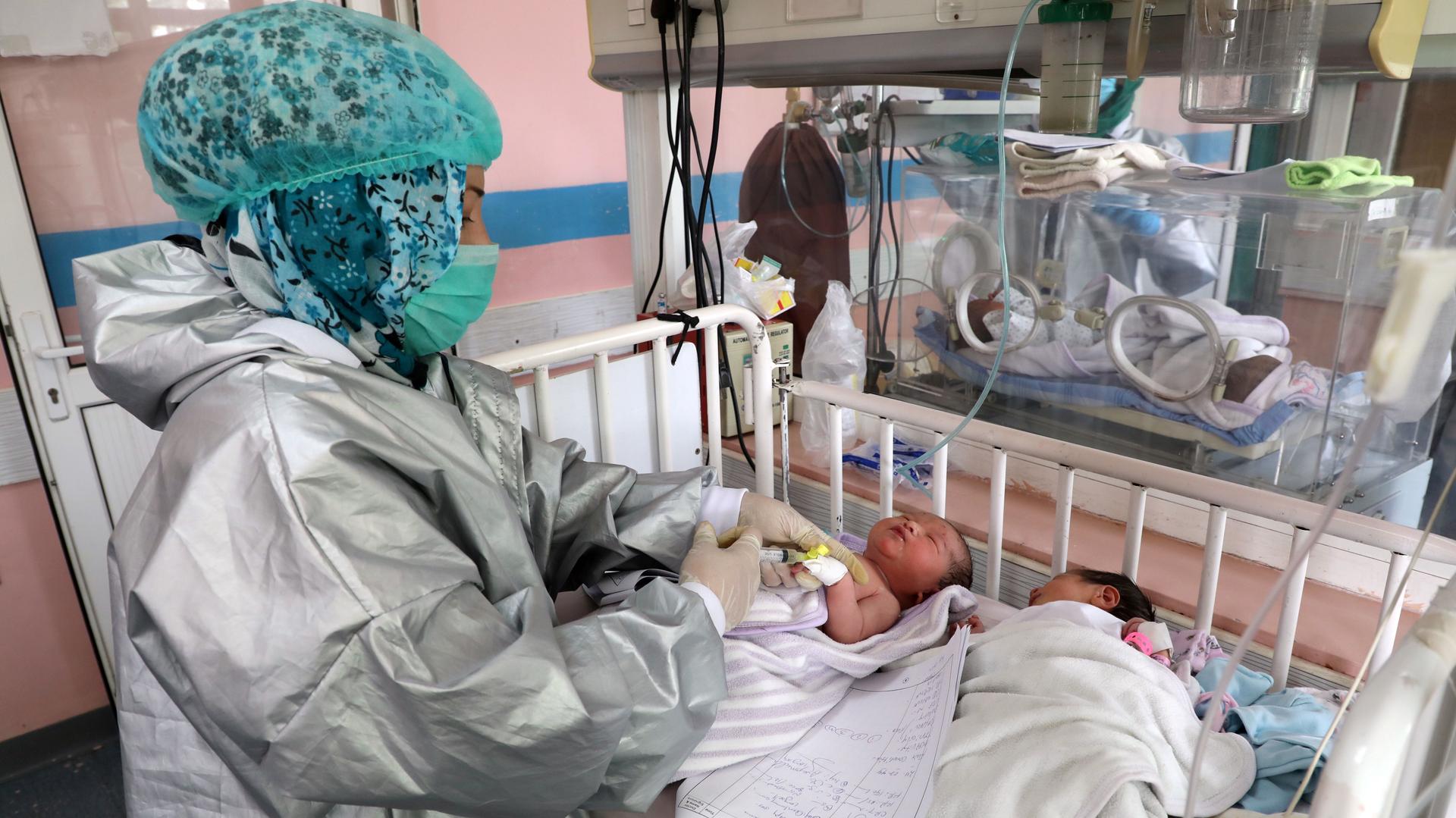It was just another morning at the Dasht-e-Barchi hospital in Kabul. The government-run hospital hosts a maternity clinic run by Doctors Without Borders, which is also known by its French name, Médecins Sans Frontières (MSF).
Around 10 a.m., three gunmen disguised as police burst into the hospital’s maternity ward and started shooting. They fired indiscriminately, killing at least two dozen people — including mothers, infants, hospital workers and a policeman.
The ordeal lasted for five hours. Videos from the scene showed Afghan security forces rushing out of the hospital with tiny newborns in their arms. Later, Zahra Jafari, a midwife at the hospital, told Afghan reporters that she had just welcomed some new patients earlier that morning. They died a few hours later.
Related: Iranian border guards allegedly drowned 45 Afghan migrants. Their families want answers.
“I just wish I hadn’t admitted them,” she said, crying. “I just wish I hadn’t.”
In a separate attack in Nangarhar province that same day, a suicide bomber targeted a funeral, killing at least 32 people. The twin attacks have left many in Afghanistan in shock and wondering when the bloodshed in their country will end.
On Wednesday, MSF issued a statement calling the attack “revolting.”
“While fighting was ongoing, one woman gave birth to her baby, and both are doing well,” MSF said in its statement.
“Under international humanitarian law, we know that [hospitals] are protected institutions.”
“Under international humanitarian law, we know that [hospitals] are protected institutions,” said Hadi Marifat, executive director of the Afghanistan Human Rights and Democracy Organization.
“So, any attack on civilian institutions and particularly medical centers and medical facilities is a war crime,” Marifat said.
In fact, in a statement, Human Rights Watch described this week’s attack on the hospital as a war crime.
Related: ISIS families held in Syrian camps face uncertain futures. Now, the coronavirus also looms.
“An attack on a maternity clinic is simply unspeakable,” said Patricia Gossman, associate Asia director at Human Rights Watch. “This attack is the latest incident of an armed group in Afghanistan targeting patients, health care workers and medical facilities.”
Marifat explained that the coronavirus lockdown in Kabul might help explain why the assailants targeted a hospital.
“Kabul is locked down, and there are not that many gatherings of the people that they could go and target,” he said. “So, the hospital was the only place with a lot of people to be attacked and killed.”
The Taliban has denied responsibility for Tuesday’s attacks. Marifat said the blame is shifting toward ISIS. However, he added, “we know that such kind of attack cannot be carried out without some sort of support from the Taliban.”
The ISIS affiliate in Afghanistan took responsibility for the attack on the funeral in Nangarhar province.
The Taliban has stepped up its attacks in recent months.
Related: Before coronavirus, young Iraqis held some of the biggest protests in the country’s history
According to Afghanistan’s Office of the National Security Council, the group has carried out dozens of attacks on a daily basis since it signed an agreement with the United States back in February.
“We are not pleased with the level of violence in Afghanistan,” said Jonathan Hoffman, a spokesman at the US Defense Department in a press conference last week.
His comments came after the US mission in Afghanistan for the first time refused to publicly release its data on insurgent attacks.
Hoffman explained why: “We’re working towards a better solution, a better place for Afghanistan and the sharing of that information would not be … would not move that ball forward.”
This is concerning to some members of the Afghan government who say that the US is turning a blind eye to the atrocities of the Taliban.
“Hundreds of attacks have happened on Afghan citizens since the deal has been signed.”
“Hundreds of attacks have happened on Afghan citizens since the deal has been signed,” Mariam Solaimankhail, a member of Afghanistan’s parliament, told The World.
Solaimankhail pointed to connections between the Taliban and ISIS in Afghanistan.
“When you look at their fighters on the ground, they’re the ones who are ex-Talebs [former Taliban members],” she said. “It seems like maybe some of them don’t like what happened with the US deal and the peace process. Their main goal is to cause disunity and mayhem in Afghanistan.”
Related: Saudi activists allege a tribesman was killed over glitzy megacity plans
Afghan President Ashraf Ghani said on Wednesday that his government is not going to stay silent. He ordered security forces to begin an offensive against the extremist groups.
Solaimankhail supports the president’s decision.
“People are dying when we’re in a defensive nature,” she said. “So, if we can become offensive, maybe it will give us some hope.”
Solaimankhail added that Afghans want peace with the Taliban.
But the Taliban has to meet them halfway.
